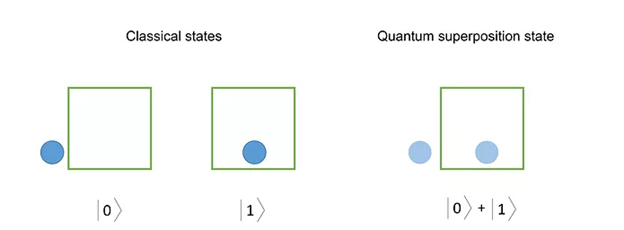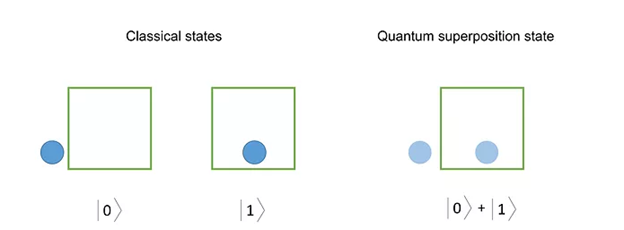Unlocking the Future: Quantum Computing’s Impact on Technology and Investment
Editor’s note: “Quantum Computing: the Key to Unlocking AI’s Full Potential?” was previously published in July 2024 with the title, “How Quantum Computing Is Already Changing the World.” It has since been updated to include the most relevant information available.
Investing successfully over the long term can take many forms. Legendary investor Warren Buffett favors businesses with strong competitive edges, while Benjamin Graham focused on undervalued stocks. Others prefer the stability of dividend-paying companies.
I concentrate on identifying the next big advancements in technology.
By observing broader trends, I pinpoint technological megatrends that are likely to transform the landscape over the next decade. This allows me to focus on stocks leading these developments.
This strategy is particularly effective during periods of market turmoil, which often present the best opportunities to buy promising stocks.
In 2015, for instance, amid fears surrounding falling oil prices and a slowing global economy, I advised taking advantage of the dip by investing in the rising chipmaker Advanced Micro Devices (AMD). A few years later, AMD’s stock appreciated by more than 8,000%.
In 2018, when the market declined due to the Fed’s rate hikes, I recommended purchasing tech stocks such as The Trade Desk (TTD), Roku (ROKU), and Tesla (TSLA). All three companies saw their stock prices rise by about 1,000% in the following two years.
March 2020 brought another chance during the turbulence caused by COVID-19. I strongly recommended stocks like ZScaler (ZS) and Snap (SNAP). These stocks surged more than 500% in the year that followed.
In essence, my approach involves looking beyond volatility to find the next wave of successful tech stocks.
I believe I may have identified another promising sector: quantum computing stocks.
Understanding Quantum Computing
To begin discussing quantum computing, it’s important to note that its foundation lies in quantum mechanics, a complex area of physics that could take over 500 pages to fully explain.
Here’s a simplified overview.
For centuries, scientists have established the principles of classical mechanics, which explain the physical world around us. This framework describes how and why things function, among other topics.
However, in 1897, J.J. Thomson’s discovery of the electron revealed a subatomic realm that does not adhere to classical mechanics. Instead, it follows a unique set of rules known as quantum mechanics.
Quantum mechanics introduces two unusual concepts that distinguish it from classical mechanics.
First, classical mechanics asserts that objects occupy one location at any given moment. You are either at home or at the store — not both.
In contrast, quantum mechanics permits subatomic particles to exist in several locations simultaneously until observed. A particle can be present at both point A and point B before measurement. Once evaluated, it then settles into one of those specific locations.
This phenomenon is called quantum superposition.

The Quantum Revolution: How Quantum Computing is Set to Transform Our World
Understanding Entanglement in Quantum Mechanics
In classical mechanics, objects can interact only with other “real” objects. Imagine trying to move a couch with an imaginary friend; it just doesn’t work.
However, in quantum mechanics, the true location of a subatomic particle is not fixed; it’s a mix of all possible states. These states are not independent; they are entangled. Knowing the state of one particle gives insight into another, forming an interconnected system. This interconnectivity allows multiple states to collaborate simultaneously for various tasks.
This phenomenon is called quantum entanglement.
With both entanglement and superposition, subatomic particles can exist in multiple states at once, enabling complex interactions. This concept challenges everything classical mechanics taught us, seeming nonsensical at first glance. Yet, it is real, and we are discovering how to use it, which has the potential to change everything.
Recognizing this potential, the U.S. government is advancing a National Quantum Internet in southwest Chicago, viewing this technology as revolutionary—possibly even more so than fire or the wheel.
Indeed, quantum mechanics may reshape our world in the coming years, presenting lucrative opportunities for investors.
The World-Changing Potential of Quantum Computing
Over the last century, especially in the past decade, quantum theory has seen remarkable progress. Leading scientists and tech companies are working to tap into the extraordinary capabilities of quantum mechanics to produce a new generation of quantum computers. These machines will outpace current supercomputers by orders of magnitude.
As Haim Israel, the head of Thematic Research at Bank of America, noted:
“By the end of this decade, the amount of calculations that we can make [on a quantum computer] will be more than the atoms in the visible universe.”
While quantum computing may seem complex, the gist is simpler to grasp. Today’s computers rely on classical mechanics, storing data in bits as either “1” or “0.” Imagine taking these bits and transforming them into qubits, which can represent both “1” and “0” simultaneously, thanks to superposition.
Additionally, leveraging entanglement allows multiple qubits to collaborate on resolving complicated problems. Theoretically, this could create machines with such immense computing power that today’s advanced supercomputers would seem outdated.
This is precisely what is occurring now.
Limitless Possibilities of Quantum Computing
Google has made headlines for developing a quantum computer that is approximately 158 million times faster than the fastest supercomputer in the world.
This is not just a figure of speech; it’s an actual measurement.
Consider the implications of creating widespread quantum computers that far surpass our current technology by such a vast margin…
We might achieve AI on a scale never before imagined. Current artificial intelligence systems are limited by the capacities of today’s supercomputers. If we could enhance our computing power significantly, we could unlock far more advanced machine learning models, leading to smarter AI.
We could pave the way for disease eradication. While we have powerful tools like gene editing, their efficiency relies heavily on the computing power used to analyze and manipulate genes. Enhanced quantum capacities could facilitate precise interventions in moments rather than lengthy processes.
Imagine the potential for a million-mile electric vehicle battery. Battery improvements largely depend on testing, which is limited by practical constraints. Quantum computing could revolutionize simulations, accelerating testing and battery innovation.
The prospects for advancements in various fields seem boundless.
Thus, the economic opportunities are massive.
Final Thoughts on Quantum Computing
Quantum computing stands as the most underrated and transformational breakthrough since the advent of the internet. It may, in fact, exceed the internet’s impact. Wall Street is beginning to pay attention.
The startup Rigetti (RGTI) has surged roughly 30% this year. Meanwhile, D-Wave Quantum (QBTS) has increased about 60%, and IonQ (IONQ) – a leading force in quantum technology – has seen its share price more than double in 2024.
Quantum computing’s momentum is undeniable.
This surge in computing power is set to expedite the AI Boom.
Moreover, it will benefit AI startups, including those launched by Elon Musk like xAI.
Owing to all the encouraging developments around AI and quantum computing, we are particularly optimistic about xAI’s growth in 2025.
Additionally, we’ve uncovered an intriguing way to invest in this potential opportunity.
Discover this little-known investment tip related to Musk’s next potential success.
On the date of publication, Luke Lango did not have (either directly or indirectly) any positions in the securities mentioned in this article.
P.S. To keep informed with Luke’s latest market insights, check out our Daily Notes! Visit the latest issue on your Innovation Investor or Early Stage Investor subscriber site.

